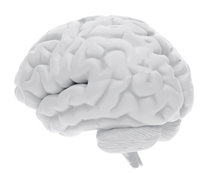Health Alerts - Important News from Current Research About Health and Nutrition
Pay attention to when you exercise if you want to protect your sleep.
New research from Monash University in Australia shows that exercising too close to bedtime may disrupt your sleep in ways such as duration, timing and quality.
Staff Reports,
April 21, 2025
Artificial sweeteners can trick your brain.
Researchers at the Keck School of Medicine at the University of Southern California found the artificial sweetener sucralose increases activity in a region of the brain that regulates appetite and body weight.
Staff Reports,
April 11, 2025
Any exercise helps improve brain function at any age.
New research from the University of South Australia found that exercise of any kind can significantly aid brain function and memory in children, adults and even older adults.
Staff Reports,
March 31, 2025
You can dance your way to better health.
A new study from Northeastern University says dancing can have the same health benefits as other forms of exercise like running.
Staff Reports,
March 24, 2025
Better sleep keeps your brain clean from daily waste.
A new study from researchers at the University of Hong Kong found poor sleep among their older study participants prevented their brains from fully utilizing the built-in waste removal system.
Staff Reports,
March 17, 2025
Studies show you may need more vitamin B12 than previously thought.
Researchers at the University of California San Francisco found that the current recommendations for vitamin B12 consumption is not sufficient to ward off neurodegeneration in older adults.
Staff Reports,
March 10, 2025
Oranges have the power to lift your spirits.
Scientists at Harvard University found eating an orange a day may reduce the risk of depression by 20 percent.
Staff Reports,
March 03, 2025
What you do is more important than what you are made of when it comes to your health.
Researchers from the University of Oxford have concluded lifestyle and environmental factors have more to do with health and aging than genetics.
Staff Reports,
February 24, 2025








